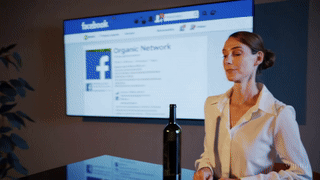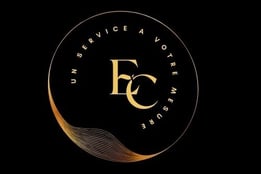How Anglo Producers Can Win in France’s Wine & Whisky Market
Discover market data, brand strategy, and digital tools to help whisky and wine producers from the UK, US, SA & Australia thrive in the French market. Anglo producers have to adapt their communication in order to go on the French Market
WEBMARKETING
LYDIE GOYENETCHE
3/28/20257 min read


Breaking into the French Market: Opportunities and Roadblocks for Whisky and Wines from English-Speaking Countries
France is globally recognized as the homeland of fine wine and sophisticated taste. For centuries, Bordeaux, Burgundy, Champagne and the Rhône Valley have defined excellence, not only in winemaking, but also in the culture of drinking itself. In such a mature and proudly domestic market, breaking through with foreign wine or spirits might seem both ambitious and improbable. Yet, for producers of whisky from Scotland, Ireland or the United States, and for winemakers from regions like South Africa, California or Australia, the French market represents more than a commercial objective—it is a badge of honor. It is where reputation, when earned, carries weight across the entire European continent.
Recent shifts in consumption habits, the rise of food and wine tourism, and the emergence of a younger, more adventurous audience have opened certain cracks in the French market’s traditional armor. While the loyalty of the French consumer to local wines remains almost unshakeable, there are signs that foreign products—especially those with compelling storytelling and distinct identities—can find their place. Whisky, in particular, has been riding a strong upward curve. On the other hand, wines from English-speaking countries are still fighting for visibility, often trapped by logistical, cultural and psychological barriers.
This article takes a deep dive into the current state of the French market for whiskies and anglophone wines, uncovering the frictions and the hidden opportunities. It examines the share of market occupied by these products, explores which niches are actually growing, and sheds light on the strategic moves required to succeed. Whether you're a small Australian winery looking to export your Shiraz, a Californian estate aiming to introduce your Pinot Noir to sommeliers in Lyon, or a Scottish distillery wanting to boost brand visibility beyond Paris, this piece will give you the essential keys to navigate the complex but rewarding French landscape.
We will also analyze the digital side of the strategy. In today’s market, success is not just about the product but also about the presence: online visibility, multilingual communication, customer experience and brand consistency matter as much as terroir. Choosing the right domain name, building a bilingual .com website and working with a professional web marketer—rather than a generic digital agency—can make all the difference between being noticed or being ignored.
Let’s begin by exploring why wines from countries like South Africa, Australia and the United States struggle to gain traction in a nation so protective of its oenological heritage.
Why Anglo-Saxon Wines Struggle in the French Market
Entering the French wine market is a daunting task for any foreign producer, but it is especially challenging for wineries from English-speaking countries. Despite the high quality and international acclaim of wines from South Africa, California, and Australia, their presence in France remains marginal. According to FranceAgriMer, imported wines represent less than 10% of total wine consumption in France, and of that, the overwhelming majority comes from neighboring European countries like Italy and Spain. Wines from anglophone countries account for a tiny fraction, often under 1%, and are rarely seen on supermarket shelves or wine lists outside cosmopolitan hubs.
The first barrier is psychological. French consumers are deeply attached to their national production, not only for reasons of taste or pride, but because of the cultural significance of wine in daily life. Wine is not just a beverage—it is a symbol of heritage, terroir, and identity. Anglo-Saxon wines, by contrast, are often perceived as too modern, too bold, or even too industrial, lacking the “authenticity” that the French associate with AOC labels and traditional viticulture. South African Chenins, Californian Zinfandels or Australian Shiraz may have won international awards, but in the French collective mind, they still struggle to compete with a Saint-Émilion or a Côte du Rhône in terms of emotional value.
The second barrier is structural. The French wine distribution system is complex and heavily fragmented. Supermarkets dominate volume sales, but listings are tightly controlled and dominated by French references. Independent wine shops, known as cavistes, may be more open to discovery, but their space is limited and their clientele tends to be connoisseur-driven. Restaurants, especially those outside of Paris, seldom offer foreign wines unless they are paired with specific international cuisines.
To break through this landscape, foreign wineries must adopt a brand strategy rooted in local resonance. That means crafting a brand story that not only showcases the excellence of their terroir—from Stellenbosch to Napa Valley—but also connects emotionally with French values: respect for craftsmanship, harmony with nature, and long-term heritage. This must be coupled with a content strategy that includes French-language content written with nuance and cultural sensitivity. SEO-optimized blog posts, localized storytelling on social media, and bilingual wine descriptions are not optional—they are essential.
The Cultural and Linguistic Gap: Why Localization is Non-Negotiable
Any attempt to enter the French market without adapting your message linguistically and culturally is likely to fail. France is not a “translate and go” market. It is a high-context culture where communication must be not only clear but emotionally intelligent. A direct, sales-heavy tone often feels intrusive, while overly casual language can come across as unprofessional. The nuances of tone, formality, and vocabulary in French are critical—especially when your product touches on luxury, gastronomy, or heritage, as is the case for wine and whisky.
According to CSA Research (2023), 76% of French consumers prefer to buy products in their own language, and 40% say they will not purchase from websites not available in French. This alone highlights the importance of true localization. A beautifully designed English website, a few press clippings, or an Instagram feed in English will not suffice. To gain traction, your digital presence must include a fully localized website in French, with professionally written content that reflects your brand voice while respecting French expectations.
Moreover, the use of the right keywords in French is essential for visibility. A French visitor will not search for “South African wine” but for vin d’Afrique du Sud. A sommelier looking for a Californian Chardonnay will likely type Chardonnay Californie or vin blanc Napa Valley. Without native SEO research and adaptation, your content simply won’t appear in search results.
Whisky in France: A Fast-Growing Market for Anglo-Saxon Distilleries
In contrast to the struggles faced by foreign wines, whisky enjoys a golden moment in France. According to IWSR Drinks Market Analysis, France is the largest importer of Scotch whisky by volume, with over 205 million bottles imported in 2023. Irish whiskey is experiencing a boom, with consumption rising by 9.3% annually, while American whiskies like Jack Daniel’s or Bulleit Bourbon are gaining ground in the cocktail scene.
This market shift is driven by a new generation of consumers, aged 25–45, who seek experiences, authenticity, and stories behind the bottle. They attend tasting workshops, explore new distilleries, and follow whisky influencers on YouTube or Instagram. This creates a perfect entry point for Anglo-Saxon brands focused on craft, heritage, and small-batch storytelling.
The niches are promising. Cask-strength editions, aged single malts from Islay, triple-distilled Irish whiskeys, and rye bourbons for mixology are all gaining traction. There is also growing interest in whisky-food pairings. According to a 2023 Nielsen survey, 58% of French whisky drinkers say they are open to pairing whisky with cheese, charcuterie, or dessert—a major cultural shift and a creative opportunity for content marketing.
The Power of a .com Multilingual Website in a Fragmented Market
Having a multilingual .com website is no longer an option—it’s a competitive edge. In France, where cross-border e-commerce is rising (with €165 billion in online sales in 2023, according to Fevad), users expect seamless navigation, trustworthy branding, and content that reflects their culture. A .com domain immediately communicates a global reach, while multilingual architecture (using /fr/, /en/, /es/ subfolders) allows your site to rank for different search queries and speak to different buyer personas.
Moreover, Google’s algorithm favors structured multilingual sites over auto-translated or duplicated domains. According to Semrush’s 2024 Global SEO Trends, multilingual .com websites with localized content outperform non-localized equivalents by 3.7x in organic visibility in non-native markets.
For wineries and distilleries, this means your story—be it about South African high-altitude viticulture or Australian Shiraz grown in Barossa Valley—must be told in French with the same depth and elegance as in your original English. Beyond SEO, this builds trust and positions you as a serious partner in the French-speaking world.
Why Working with a Web Marketer Is Essential for Success in the French Market
Digital success in France requires precision, adaptability, and local expertise. A web marketer brings all three. Unlike a webmaster who focuses on technical maintenance, or a generic digital agency who follows templates, a web marketer is a strategic partner—able to align your brand identity with market expectations, analyze real-time data, and fine-tune your message.
According to HubSpot France, 72% of B2B buyers say they are more likely to buy from a brand that offers a localized, seamless digital experience. A web marketer ensures your content is not only translated but adapted to local search behavior, conversion expectations, and cultural cues. With tools like Google Analytics, SEMrush, and Hotjar, they track engagement by source—social media, backlinks, paid campaigns, or even AI-driven queries—and adapt your SEO, SEA and content budget accordingly.
For example, if users from backlinks or AI tools like ChatGPT or Perplexity convert more, budgets can be shifted toward authority-building and conversational search optimization. If Instagram performs better than LinkedIn for certain segments, community management will be adjusted. Only a web marketer has the holistic vision to orchestrate this across the full funnel—from acquisition to loyalty.
Conclusion: Future Trends and Strategic Positioning Beyond 2025
Looking ahead, opportunities for whisky and wine producers from English-speaking countries will continue to grow—if they embrace the digital-first, story-driven, and culturally fluent approach demanded by the French market.
Eco-conscious consumption will play an increasing role. According to GreenFlex (2024), 67% of French consumers now say environmental impact influences their alcohol purchase decisions, and this number rises to 79% among under-35s. Carbon-neutral wineries in New Zealand or biodynamic South African producers will find resonance, especially if their message is clearly articulated in French and supported by verifiable data.
The rise of voice search, AI-curated recommendations, and smart commerce platforms will reward brands with rich, structured, and accessible content. Gen Z and Millennials want to discover, not be sold to. This means storytelling, transparency, and digital engagement will define your position as much as quality or pricing.
France remains a demanding market—but also a prestigious one. If you succeed here, you don’t just sell. You earn influence.


EUSKAL CONSEIL
9 rue Iguzki alde
64310 ST PEE SUR NIVELLE
FRANCE
0033782505766
euskalconseil@gmail.com

